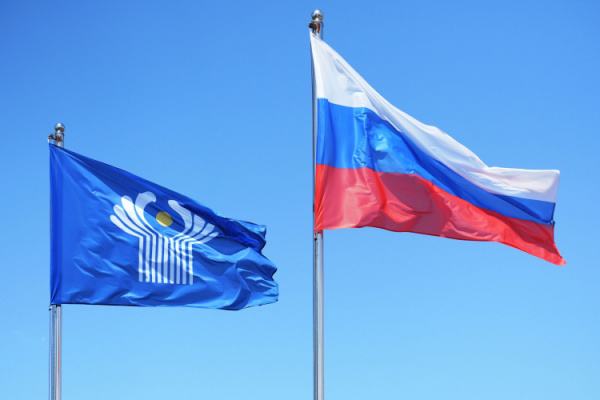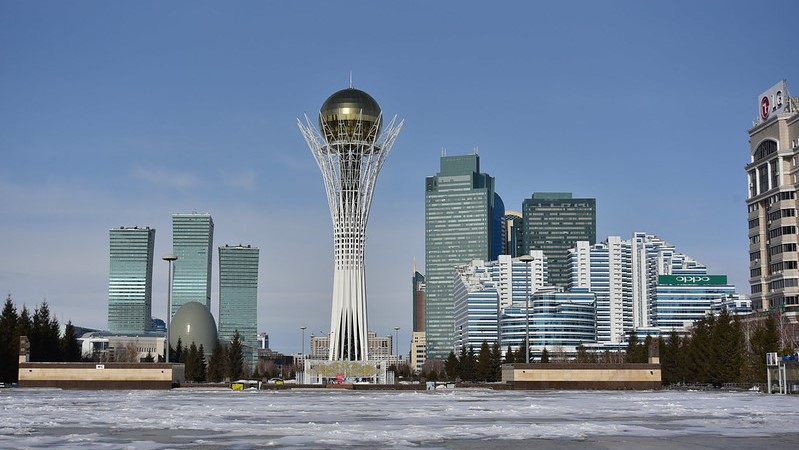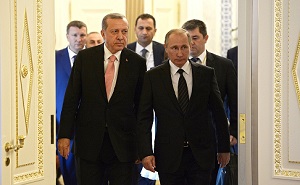The Informalization of CIS and Formalization of EEU: Russia’s Strategy to Maintain Leverage in its Neighborhood
By Farkhod Tolipov
January 25, 2024
On December 25-26, 2023, two summits were held in Saint Petersburg: the Eurasian Economic Union (EEU) summit and the so-called CIS informal summit. They can be regarded as a joint summit of two organizations with similar goals. In fact, in its attempt to prevent the fate of a fading empire, Moscow seeks to resort to its soft power instruments and create a semblance or entourage of collectivity around Russia. In the context of its war in Ukraine and frequent unfriendly and threatening statements towards its neighbors, the Kremlin’s artificial collectivity looks like a disguise of its loneliness.

Kazakhstan, Distancing from Russia, Courts Ethnic Russians
By Dmitry Shlapentokh
September 13, 2021, the CACI Analyst
Kazakhstan is undergoing several contradictory processes that superficially seem disconnected. Relations between Astana and Moscow have worsened visibly, despite the fact that both countries are members of the Eurasian Economic Union (EEU). Influential Russian Duma deputy Viacheslav Nikonov has insisted that Kazakhstan is actually an artificial state created by the Soviet regime. According to Nikonov, the northern part of the country, with a large number of ethnic Russians and/or Russian-speakers, is actually part of Siberia and was an unlawfully given to Kazakhstan. Kazakh authorities rejected these statements and arrested Ermek Taichibekov, an ethnic Kazakh intellectual who has advocated close ties with Russia. Simultaneously, while increasingly hostile to Russia, members of the Kazakh political elite have sought to forge a reconciliatory message, wrapped in historical allusions, to Kazakhstan’s Russians in support of their peaceful assimilation.

The Eurasian Union Flunks Its Stress Test
By Stephen Blank
April 27, 2020, the CACI Analyst
Crises are often telling indicators of an institution’s fitness. The Coronavirus pandemic is currently putting governments and regional institutions like the EU under profoundly challenging stress tests. Another such regional institution is the Eurasian Economic Union (EEU), which Russian President Vladimir Putin and its champions have claimed is organized along the lines of the EU. Whatever the EU’s successes or failures, it is clear that the EEU has failed to display even a semblance of the EU’s cohesion. Moscow has simply disregarded the interests of its partners and pursued a sharply unilateralist policy that seriously complicated if not threatened its partners’ economies, particularly in Central Asia.

Weaker Turkey leaves the South Caucasus without Strategic Anchor
By Mamuka Tsereteli
February 17, 2017, the CACI Analyst
The weakening strategic position of Turkey will have a profound impact on the Black Sea-Caspian region and wider Central Asia. An assertive Russia and diminishing U.S. and Western engagement further limits Turkey's ability to play a pro-active role in the region. For regional actors in the South Caucasus, part of the solution should be to create the best possible conditions for transiting Asian cargos via Central Asia, the Caspian Sea, the South Caucasus corridor and the Black Sea to Bulgaria and Romania. This is how countries of the South Caucasus can bring new balancing powers to the region.

EU–China trade to bolster security in the South Caucasus
By Boris Ajeganov
January 23, 2017, the CACI Analyst
Foreign investment in Georgia is strengthening the country’s importance in connecting East Asia with Europe, which has positive implications for the broader region. The rise in FDI in commercial and transportation infrastructure in combination with the signing of international free trade agreements will reduce Georgia’s vulnerability in terms of economic and, ultimately, ‘hard’ security. The growing importance of the South Caucasus as node for EU-China trade will weaken Russia’s incentives to undermine its southern neighbors by military, political, and economic means as it has done in the past. Accordingly, Tbilisi’s ability to conduct an independent foreign policy is set to improve despite the absence of Western security guarantees.




